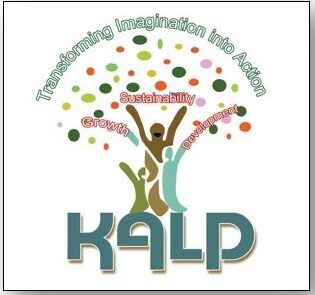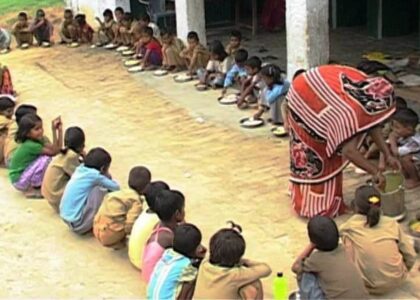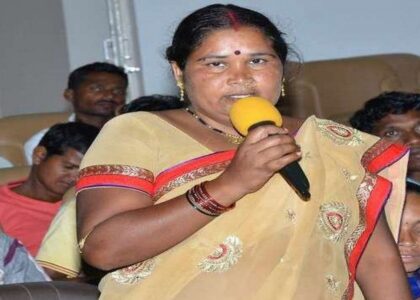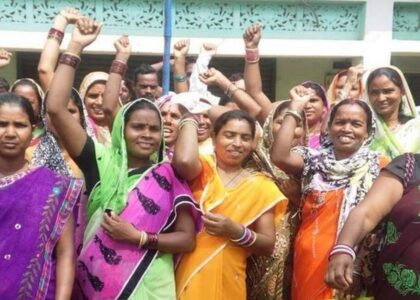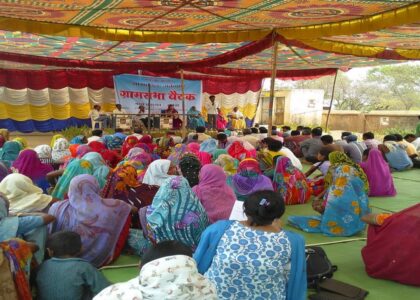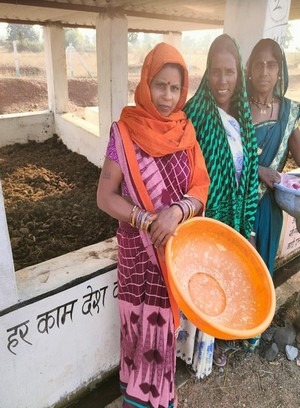
Our Work – Livelihood
70 years back only five families came here and started to stay. As human nature slowly few more came and joined the fleet. And as on there are 33 families staying in the village name “UPRANI.” Having population of 203. This village forest village is 15 km inside from the main road and 25 km from block office. Whereas 55 km away from district and 150 km away from state capital. This small village gram panchayat is only 8 km known as “Amakhoha” panchayat. In 2016-17 this village was identified for sustainable livelihood program. Organization started doing their interventions in this village through various activities. Formation of village development committee and self-Help groups were the initial interventions. At this stage women of this village were busy, just like any other women in daily household activities, family matters, staying in poverty and illiteracy and totally economically dependent on their family head or male member of the family. They were not knowing what importance of saving is, or how self-help group can support and strengthen their economy. On the other hand, counterpart was also thinking that women are meant only for household purpose. Women can play a small role of cleaning and washing in community functions. women going out of the way to empower them was just a dream for both women and men.
Due to Organizations unceasing efforts villagers slowly came to know the work of the organization, their objectives behind forming and strengthening village institutions, and importance and role of village institutions in village development, need of self-help group for financial support etc. Continuous learning and training were the central points to knowledge sharing and capacity building of the villagers specially for women. Organization formed two self-help groups. Group members named their groups as kali and durga. The formation of SHGs has created a platform where women can meet on regularly. During meetings, members discuss and decide standard rules, share their problems, and give each other advice, leading to the development of care and concern for one another. This developed sense of belonging, overcoming isolation, having plans in life, looking into the future positively, having ambitions to change their lives and the lives of their children. The functions of this level include weekly meetings with regular savings, through various capacity building trainings. To make a positive impact organization provided in-depth knowledge to the Self-help group members. Through the SHG approach, women have become aware of the governance structures within their localities. They now discern where to go to seek assistance or report social challenges. The formation of SHGs has created a platform where women can test their leadership skills, through monthly meetings and discussions on issues relating to welfare, they have developed. It is during these discussions that women realize their leadership skills, giving them the confidence to take part in various project activities and trainings, on organic farming, kitchen gardening, preparation of bio-pesticides and bio-fertilizers, strengthening them on leading the meetings, meeting local authority, as they can now better express themselves. Thus, attaining empowerment with the help of organization, helps women to discuss their personal and professional issues with their friends, members of organization or relatives and solve them out. This not only develops their confidence but also helps them in nurturing themselves and creating their own identity. It boosts their morale and creativity, which encourages them to produce creative and innovative outcomes Through entry point activity organization also provided two goats to each group as an additional livelihood support. For this also number of trainings were organized for women, for example how to take care to goats, their vaccination, various diseases, shed etc. Though they had loss in between while rearing goats, women didn’t lose their hope towards development. Slowly moving ahead these groups have started to earn money by selling goats. Till now they have earned 15,000/- to 17,000/- Rs, members got confidence to create and run a small business.
After the initial success group members of both the groups jointly took a decision to support their families through additional income generating activity. Uprani is an interior village of kasdol block where mostly people are engaged in agriculture and labour work at farms. As mentioned above these women are trained in preparation of vermicomposting.As per recent state policy under “Gothan” scheme panchayat will provide place to prepare biopesticides by purchasing green manure from farmers and converting it in vermicompost and will provide farmers for agriculture purpose at very minimum rate. It has been adopted by panchayat as a good practice that is implemented as a source of income for Self-help groups. Panchayat in collaboration with MGNREGA, is working to expand organic fertilizer capacity and pave the path for the production and use of Vermicompost in the future. Knowing this organization made linkages with panchayat. It is significant to note that, “Gothan” scheme is supposed to implement at panchayat level, (Amakhoha), but Knowing SHGs work panchayat approached to these group to take up Gothan work in uprani village which is known as dependent village of Amakhoha panchayat. Knowing SHGs work panchayat decided to give this work to these group. These women with ordinary background with no or little education background came together to take up this business challenge from panchayat.
In November 2021 these groups started to work under Gothan scheme. Within four months these groups have earned one lakh and six thousand rupees by selling vermicompost fertilizers to society by selling one sac compost at Rs. 300/-.
Government has shown its commitment to support SHGs through their Gaothan program. This assurance gave strong sense to the SHG members, and the interviewed individuals mentioned that promise of recognizing the SHG approach as a working method. Kalp played an essential role in transforming the poor to be potential entrepreneurs by providing basic education, motivation, and proper guidelines.





